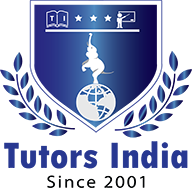Proposal on
Annual National Assessment as policy to measure quality in
Literacy in the foundation Phase
Literacy in the foundation Phase

Then You’ve Certainly Reached the Right place
Proposal on Annual National Assessment as policy to measure quality in Literacy in the foundation Phase
Published 11, August 2010Introduction
The Annual National Assessment (ANA) is a summative assessment of the knowledge and skills that learners are expected to have developed by the end of grades 1 to 6 and 9. They are standardized national assessments for languages and mathematics in the intermediate phase (grades 4 to 6) and in literacy and numeracy for the foundation phase (grades 1 to 3). To help learners gain confidence and success in external assessments, panel of educators came forward with an exemplar test questions which teachers could use in their language and mathematical lessons. This exemplar that is inclusive of ANA model test is provided for each grade is supplements for school based assessments.
The foundation phase is a Welsh Assembly Government, national reform covering the ages of 3 to 7. The foundation phase is the stage that meets the developmental needs of all children. It is based on the principle that a developmentally appropriate curriculum should provide solid foundation for children’s learning. This phase is proposed as a continuum of learning for children from ages 3 to 7. This new curriculum is on the basis of current desirable outcomes for children’s learning before compulsory school age (ACCAC, 2000) that links with the programmes of study and focuses statements presently in National curriculum for KS1. There are seven areas of learning (AOLs) which are similar to those found in the desirable outcomes document except for the addition of well-being to the personal and social development AOL and new AOL – Bilingualism and multicultural understanding (Groves et al., 2011).
Aims And Objectives:
The primary aim of this research is to determine the potential of Annual National Assessment policy (ANA) on measuring the quality of literacy in the foundation phase.
The research objectives of the study are:
- To evaluate the effectiveness of ANA on raising the literacy achievement of the foundation phase (grade 3) in comparison with other intervention designed in the school.
- To explore the impact of ANA on the children class room practice (attitude and behavior)
- To compare the impact of ANA program on the literacy levels of grade 3 children in class rooms with their weakest peers having access to the program.
- To identify the limitations of ANA tool and strengths, barriers and challenges in the implementation phase of Annual National Assessment in foundation phase
- To develop and recommend an appropriate measures that improves the literacy level among grade 3 levels.
Literature Review:
Education makes a significant contribution in assisting learners to accomplish their own economic, social and cultural initiatives (Wasik, 2012). Educators are responsible to determine the reading level of learners through various assessments in classrooms (OECD, 2008). Over the past two decades, there are literature evidences on the importance of reading and teaching students various reading strategies to improve their comprehension level (Caskey, 2008; Alvermann, Phelps & Gillis, 2010; Ngwenya, 2010). Generally, reading is the essence of formal education. This is pointed out by Grabe (1991: 389) as, “literacy in academic settings exists within the context of a massive amount of print information” (Grabe, 2008) wherein, the students access this information primarily through reading. Students at tertiary level are pushed with large number of texts to read independently (Day & Sachs, 2005). However, at this level, it demands more time and ability to identify the written words (Le Cordeur, 2010). Most of these students lack comprehension skills at this level, it is difficult to critique, analyze and evaluate from various information. Thus, the lack of comprehension level influences the level of academic performance.
With the advent of democratization of South Africa in 1994, the education system changed relatively and significantly, the integration of previously separated education systems both at national and regional level. Though there exist many strategies to teach and assess reading performance, the democratic government of South Africa has inherited a divided and unequal system of education. South Africa had 19 various educational departments under apartheid incoherent by race, geography and ideology that developed learner’s readiness to engage in their expected position (National research council, 2008). There are 6 million adults in South Africa above the age of 16, who have not done their schooling and who cannot read and write (Centre for evaluation and assessment, 2006). The department of Education National Curriculum Statement (NCS) (2002) recommends “balanced approach” in literacy development, to ease up the educational system that supports effective and efficient teaching and learning.
Annual national assessment is the established first rate system and is the priority of the department of Education. This is because, it fundamentally engages all learners in key grades (grades 1 to 6) and learning areas to write standardized tests, common across provinces and schools (Department of education, 2011). Annual National Assessment is a strategy of the Department of Basic education to develop the quality of learning outcomes in the education system. The objective of ANA is examining the learner’s performance every year in literacy and numeracy with a purpose to serve and improve learner’s performance along with the commitments made by the government (Sylva, 2010). The ANA results investigate the progress, guide planning and allocation of resources to alleviate improvement in literacy and numeracy and skills of learners in the concerned grades (Meier, 2011). The Education Department of South Africa contemplates that every learner in South Africa should have a solid foundation and hence, the minister of education in south Africa declared that the national Department of Education would set in motion the “Foundations for Learning” (FFL) campaign (Department of higher education and training , 2012) in South African schools in the Government Gazette of 14 March 2008 (No. 30880) (Department of Education, 2008).

Researchers to mentor-We write your Assignments & Dissertation
With our team of researchers & Statisticians - Tutors India guarantees your grade & acceptance!
Our ServicesResearch Methodology:
A literature review will be undertaken to integrate the materials relating to ANA, literacy in foundation phase of schooling. Further, the factors contributing to poor reading and writing in education system and strategies to improve, strengths and weakness of ANA, challenges in the implementation of ANA in grade 3 level will be considered. The study compared the program with the grade 3 children who are exposed to ANA program and with that of children where ANA was not available but received the schools other intervention program.
The research process comprises various approaches, methods, procedures and techniques for overall validity and reliability (Saunders et al., 2009) (Kothari, 2009). There are many phases of research as it involves collection, analysis, and interpretation of information through various sources. This phase of research is important as it bridges the gaps identified in the literature review and presents guidelines for clear understanding to measure the quality of literacy in grade 3 level in foundation phase.
Research design involves logical flow of activities to acquire participants, gather information and formulate conclusion about the research problem (Mitchell & Jolley, 2012). This research study entails a mixed method research, which is a combination of qualitative and quantitative methods. The primary data will be collected using the survey method using a questionnaire. Questionnaire is the most appropriate tool as it helps to collect data easily from educators on literacy issues persistent among the grade 3 children (Kumar, 2011). Further qualitative assessment was done among teachers to assess the barriers and challenges in implementing the program. Along with, triangulation will be used as it helps to double check the outcomes of the study (Saunders et al., 2009). The educators play a significant role to train learners to a certain level of what is expected on a certain grade. Thus, this research study will consider grade 3 educators to interpret and analyze the quality of literacy in grade 3 level.
References
ACCAC, 2000. Desirable Outcomes for Children’s Learning before Compulsory School Age Cardiff. 2nd ed. ACCAC.
Alvermann, D., Phelps, S. & Gillis, V., 2010. Content reading and literacy: succeeding in today's diverse classrooms. Boston: Allyn and Bacon.
Caskey, M., 2008. Comprehension strategies that make a difference for struggling readers. New York: The Guilford Press.
Centre for evaluation and assessment, 2006. Perceptions of Educators of Reading Literacy; A Case Study of the Intermediate Phase in South African Primary schools. Journal of Economics and Behavioral Studies, 4(10).
Day, C. & Sachs, J., 2005. International Handbook On The Continuing Professional Development Of Teachers. McGraw-Hill International.
Department of Education, 2008. National reading strategy.
Department of education, 2011. A Teacher’s Handbook, 2008. Teaching Reading in the Early Grades: A Teacher’s Manual. [Online] Available at: http://www.education.gov.za [Accessed 13 December 2012].
Department of higher education and training , 2012. Green Paper for Post-School Education and Training. Pretoria : Government Gazetter.
Grabe, W., 2008. Reading in a Second Language: Moving from Theory to Practice. New York : Cambridge University Press.
Groves, R.M. et al., 2011. Survey Methodology. 2nd ed. John Wiley & Sons.
Kothari, C., 2009. Research Methodology. New Delhi: New Age International.
Kumar, R., 2011. Research methodology. New Delhi : APH Publishing.
Le Cordeur, M., 2010. The struggling reader: identifying and addressing reading problems successfully at an early stage. Per Linguam.
Meier, C., 2011. The foundations for learning campaign: helping hand or hurdle? South African Journal of Education, 4(31), pp.1-15.
Mitchell, M.L. & Jolley, J.M., 2012. Research Design Explained. Cengage Learning.
National research council, 2008. Early Childhood Assessment: Why, What, and How. Washington: National Academies Press.
OECD, 2008. Reviews of National Policies for Education Reviews of National Policies for Education: South Africa 2008. OECD Publishing.
Saunders, M., Thornhill, A. & Lewis, P., 2009. Research methods for business students. 5th ed. Pearson education limited.
Sylva, K., 2010. Early Childhood Matters: Evidence from the Effective Pre-School and Primary Education Project. Taylor & Francis.
Wasik, B.H., 2012. Handbook of Family Literacy. Routledge.

Full Fledged Academic Writing & Editing services
Original and high-standard Content
Plagiarism free document
Fully referenced with high quality peer reviewed journals & textbooks
On-time delivery
Unlimited Revisions
On call /in-person brainstorming session
More From TutorsIndia
Coursework Index Dissertation Index Dissertation Proposal Research Methodologies Literature Review Manuscript DevelopmentREQUEST REMOVAL



